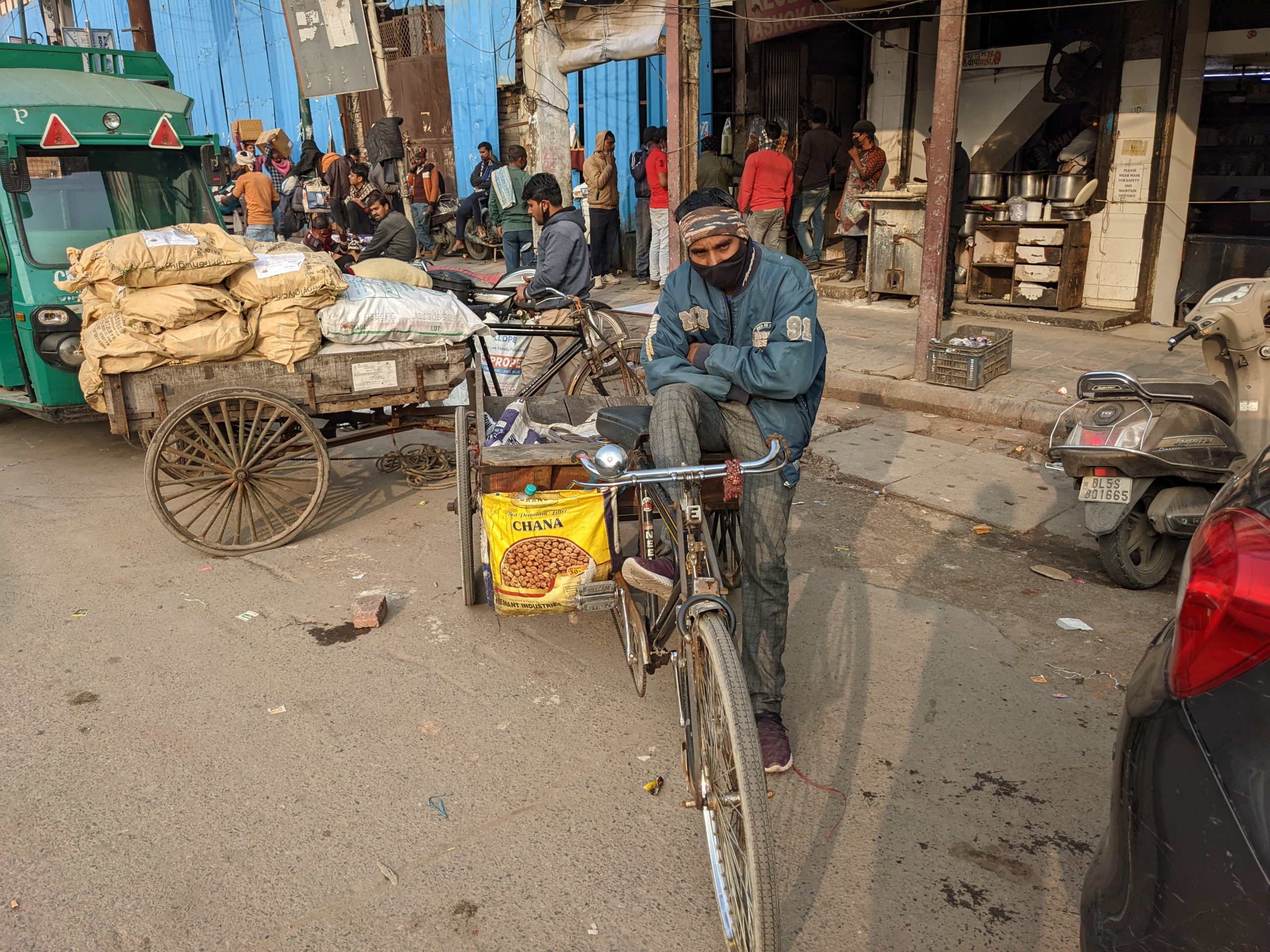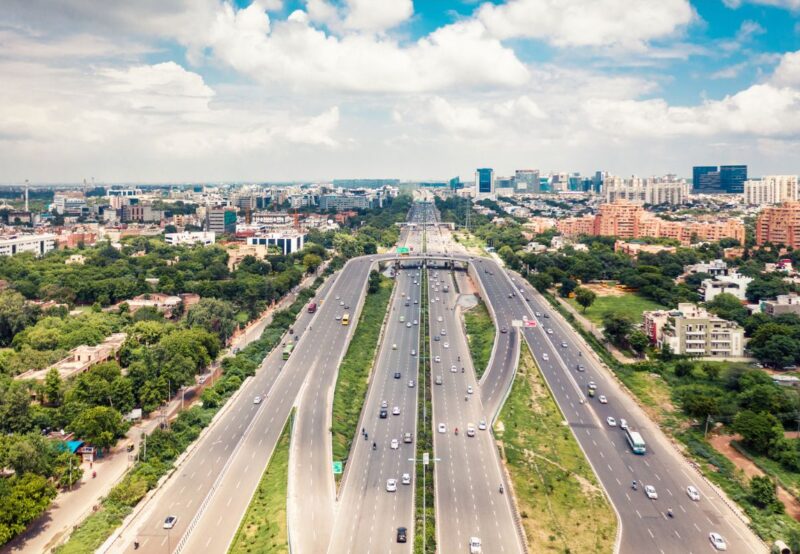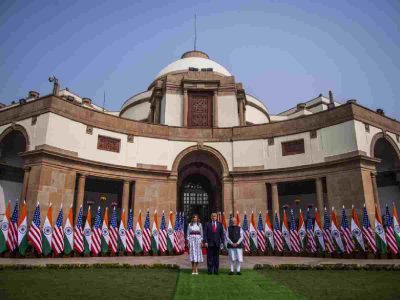Whether they go back to their villages or stay on in hope of an economic revival, migrants in the Capital have been barely surviving in the face of the two-year long pandemic. Reduced earnings have hit their pocket and the prospect of lockdown is affecting their morale.
Daily wagers, who lack any means to survive when commercial activity is curtailed, are planning to head home as soon as lockdown is announced by the Delhi government
Amid the third wave of coronavirus and weekend lockdown in the capital, labourers are again in the lurch and are thinking of moving back to their native places.
Farooq, a daily wager, who works as a porter at Sadar Bazar and belongs to Saharsa district of Bihar, told Patriot, “Many of my friends have gone back to their native places after the weekend lockdown was imposed by the Delhi government. What can we do, nothing is in our hands; if there is no work, what will we eat? I spent all of my savings in the first lockdown of 2020, I was stuck in Delhi, but now if a lockdown is imposed again, I will move to my native village”.
In 2020, when a sudden lockdown was announced by the Government of India, millions of migrant labourers started walking on foot toward their native places. Memories of that traumatic experience are still fresh. This was the period that still haunts them and many are trying to recover from the financial loss which they suffered two years ago.
When we asked him if he got any help from the Delhi government, he said, “No sir, nothing was provided to me by the government. No one worries about labourers. People on the upper strata of the system swallow our money”.
On asking how the series of lockdowns affected him financially, he said, “Before Covid, I used to earn Rs 800-1,000 a day but now I only make Rs 150-300. I started my working day at 5:00 am, now it is evening and I have earned only Rs 150”.
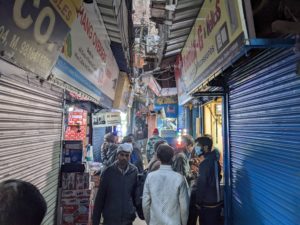
According to data by the Centre for Monitoring the Indian Economy (CMIE), an average four-member household at the bottom of the income distribution lost Rs 15,700 (just over two months of income). Several independent surveys also reveal sharp drops in income ranging from 40% to over 80% for informal sector workers, not only during the lockdown but even in the subsequent months.
When we asked Farooq how he managed his expenses back home, he said, “I have a small piece of land in my village and little savings done here. Crops from the land helped me run the house but it is not feasible for me for a long time. If a lockdown is imposed again, I have no other option but to move back to my village. This time my savings are much less than before and I am worried about my future”
Ram Parkash, who hails from Gonda, Uttar Pradesh and is a daily wager, has a similar tale of woe. He was sitting on cartons waiting for work when we asked him what he would do if a lockdown is announced by the government. He says, “I have a family of five members. I made no money to get me through Saturday and Sunday because of restrictions and again if there is a lockdown, I would have no other option but to move back to my native place”.
When we asked him how the 20-month-long pandemic has affected his earnings, he said, “Work has decreased because of lockdown and virus and because of this my income has fallen drastically in the past two years. Earlier, I used to earn Rs 700-800 but now I only take around Rs 400 back home”.
At the height of the third wave, Labour Chowk in Munirka was looking deserted and only a dozen men were waiting for the work. One of the men sitting with other labourers was Rajiv Kumar, who came to Delhi two years ago in search of work from Hamirpur District of Uttar Pradesh. Back in the village, he was doing agriculture, but increasing inflation and decreasing income have made him a migrant labourer in Delhi. When Patriot asked him what he will do if again THE capital goes under lockdown, he said: “What I will do in Delhi, sitting idle is not beneficial for me, how I will pay my rent and what I will eat, it will be better for me to move back to my village if a situation like a lockdown arises”.
When we asked him why the Labour Chowk is looking deserted, he said, “In the morning, there were hundreds of men waiting for work here but, now all have returned to their quarters and homes without finding any work”.
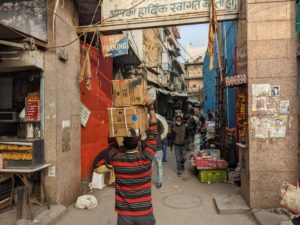
Rama Nand, who is from Bihar’s Lakhi Sarai and who is working as a labourer to feed his family of seven members looked irked when we asked him what is his plan if Delhi again witnesses a lockdown. He said “Some people who want to go will go but, I will not leave Delhi”. When we asked him what keeps him here, he answered, “Sir, I have loans to pay back in my village and it is not easy for me to show my face to lenders. People who have taken private loans in their villages will not go back”.
When we asked him, how he pandemic has dented his income, he said, “I get one day or two days work in a week and I make around Rs 800-1,000 a week, this amount is very little. It is becoming hard for me to survive and in this little amount I am not able to properly bear the expenses of my family’’.
When we asked him if there was any help he got from the government, he said, “No sir, nor State government, neither has the central government helped us, nor the Delhi government. Nobody is doing anything for the poor”.
In an irritated tone, he said, “Garib logon k liye coronavirus koi bimari nahi ha, hmara liya garibi hi sabse badi bimari ha” (for us coronavirus is not a disease but, for us poverty is the biggest disease).
According to a report by Oxfam India, 4.6 crore Indians slipped into extreme poverty during the pandemic and this is nearly half of the global new poor according to the United Nations. One of the most affected communities in this economic crisis is informal labours. On 26 August 2021, the Union Government launched the e-Shram portal (www.eshram.gov.in) for creating a national database of unorganised workers. According to Union Minister for Labour and Employment Bhupinder Yadav, over 14 crore people have got registered on the e-Shram portal and 14,02,92,825 e-Shram cards have been issued. This is nearly one-third of the total workforce in the informal sector in India.
Bhagat, a migrant worker from Balarampur, Uttar Pradesh showed us his e-Shram card and asked us “I don’t know what benefit I will get from this card”. When Patriot asked other labourers that do they know about schemes run by State and Central government for the workers in the informal sector, they said yes, we are aware of Shram Card and Labour Card, but we are not enough educated to fill the form online to get benefit from this scheme and paying Rs 200-500 at cyber cafés is not possible for us.
This is the plight of most unskilled workers who come to major metro towns to work as labourers. Lack of economic activity has reduced their daily pickings and a total lockdown makes their situation pitiable.

